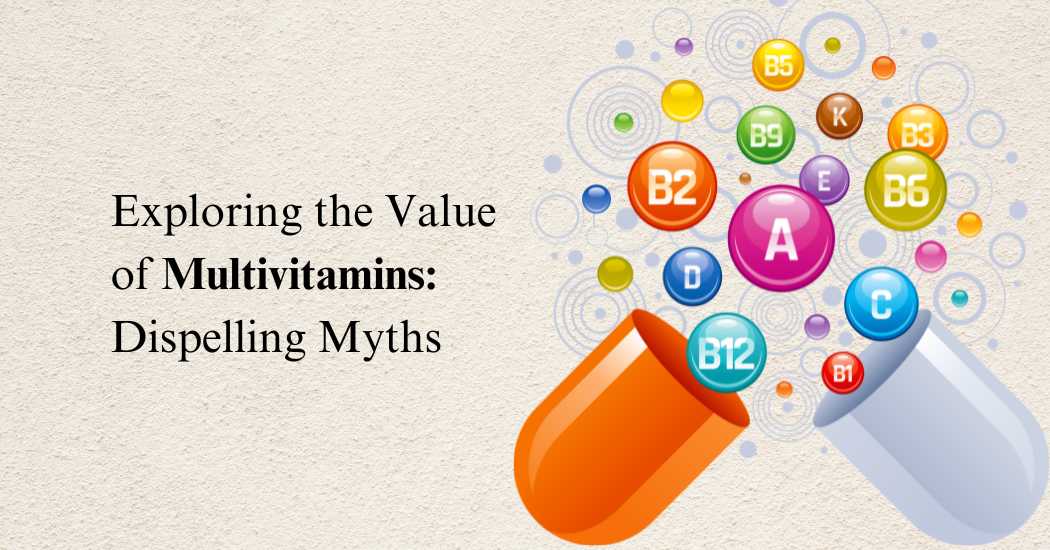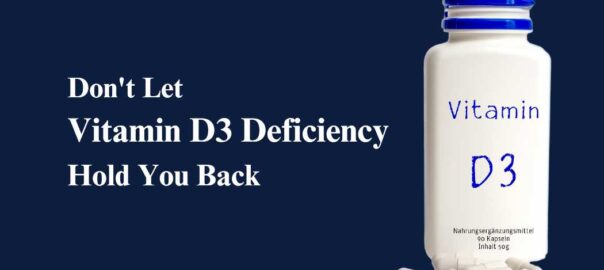
In the realm of health and wellness, multivitamins have garnered both praise and skepticism. They’re often touted as essential for overall health and disease prevention, but misconceptions abound. Let’s delve into the discussion and dispel some of these myths.
Myth 1: Multivitamins Can Replace a Balanced Diet
One common misconception is that popping a multivitamin can compensate for a poor diet. While they can supplement dietary gaps, they’re not a substitute for whole foods. A diet rich in fruits, vegetables, lean proteins, and whole grains provides a plethora of nutrients, fiber, and antioxidants that can’t be replicated by supplements alone.
Myth 2: Not All Multivitamins Are Created Equal
It’s crucial to recognize that the quality of multivitamins can vary significantly. When selecting a multivitamin, it’s essential to consider factors such as potency, bio availability, and third-party testing. Opt for reputable brands that undergo rigorous testing to ensure purity and potency.
Myth 3: Multivitamins Offer Protection Against Chronic Diseases
While multivitamins can support overall health, they’re not a magic bullet for preventing chronic diseases. Genetics, lifestyle choices, and environmental factors play significant roles in disease prevention. While certain nutrients may offer protective benefits, they should be viewed as part of a comprehensive health strategy rather than standalone preventatives.
Myth 4: More Is Better
Some believe that consuming excessive amounts of vitamins and minerals will yield better results. However, megadoses can have adverse effects and may even be toxic. It’s crucial to adhere to recommended daily allowances and consult with a healthcare professional before exceeding them.
Myth 5: Multivitamins Are Only for the Unhealthy
Even individuals with healthy diets can benefit from multivitamin supplementation. Factors such as age, gender, dietary restrictions, and lifestyle habits can impact nutrient needs. Additionally, certain populations may have specific requirements that are challenging to meet through diet alone.
Myth 6: Multivitamins Guarantee Increased Energy Levels
While some individuals may experience a boost in energy after taking multivitamins, this effect isn’t universal. Responses to supplementation vary, and other factors such as sleep quality and stress levels can influence energy levels. Multivitamins can support overall energy production but should be part of a holistic approach to vitality.
Myth 7: Multivitamins Are Risk-Free
While generally safe, multivitamins can interact with medications and other supplements. Certain nutrients may interfere with medication absorption or efficacy, while others can pose risks at high doses. It’s essential to disclose all supplements and medications to healthcare professionals to avoid potential interactions.
Myth 8: Supplements Are Regulated Like Medications
Unlike medications, dietary supplements are not subject to the same rigorous regulations for safety and efficacy. While reputable brands adhere to quality standards, issues such as contamination and mislabeling can occur. Consumers should research brands thoroughly and consult healthcare professionals before starting any supplement regimen.
Myth 9: Multivitamins Are a Quick Fix
Some view multivitamins as a shortcut to good health, but they can’t undo the damage caused by poor lifestyle habits. Optimal health requires a holistic approach that includes nutritious eating, regular exercise, stress management, and adequate sleep.
Myth 10: Everyone Needs to Take Multivitamins
While multivitamins can be beneficial for many, they’re not necessary for everyone. Individual nutrient requirements vary based on factors such as age, gender, and health status. Consulting with a healthcare professional can help determine whether supplementation is warranted.
Conclusion
In conclusion, while multivitamins can be valuable supplements for supporting overall health, it’s essential to debunk common myths and misconceptions. A balanced diet, healthy lifestyle habits, and personalized supplementation plans are crucial for optimizing health and well-being. By making informed choices, individuals can ensure they’re getting the nutrients they need to thrive.
Frequently Asked Questions (FAQs)
Q. Are multivitamins necessary if I already eat a healthy diet?
A. While a balanced diet provides essential nutrients, multivitamins can help fill in any nutritional gaps that may exist. Consulting with a healthcare professional can help determine if supplementation is necessary.
Q. Can multivitamins prevent chronic diseases?
A. While multivitamins can support overall health, they’re not a guaranteed preventive measure against chronic diseases. Factors such as genetics, lifestyle choices, and environmental factors also play significant roles.
Q. How do I choose the right multivitamin?
A. When selecting a multivitamin, consider factors such as quality, potency, and bioavailability. Opt for reputable brands that undergo third-party testing and offer a wide range of essential nutrients.
Q. Are there any risks associated with taking multivitamins?
A. While generally safe, multivitamins can interact with medications and other supplements. It’s essential to consult with a healthcare professional before starting any new supplement regimen, especially if you’re taking medications.
Q. Can multivitamins boost energy levels?
A. While some individuals may experience increased energy levels after taking multivitamins, this effect isn’t guaranteed for everyone. Energy levels can be influenced by various factors, including sleep quality, stress levels, and overall health.
Q. Who can benefit from taking multivitamins?
A. Multivitamins can benefit individuals with specific nutrient deficiencies, dietary restrictions, or lifestyle habits that may impact their ability to obtain essential nutrients from food alone. Consult with a healthcare professional to determine if supplementation is necessary.
Q. Are all multivitamins the same?
A. No, not all multivitamins are created equal. Different brands may vary in terms of quality, potency, and formulation. It’s essential to choose a multivitamin from a reputable brand that undergoes third-party testing for purity and potency.
Q. Should children take multivitamins?
A. Children with specific dietary restrictions, picky eating habits, or certain health conditions may benefit from multivitamin supplementation. However, it’s essential to choose a children’s multivitamin specifically formulated for their age group and consult with a pediatrician before starting any new supplement regimen for children.











